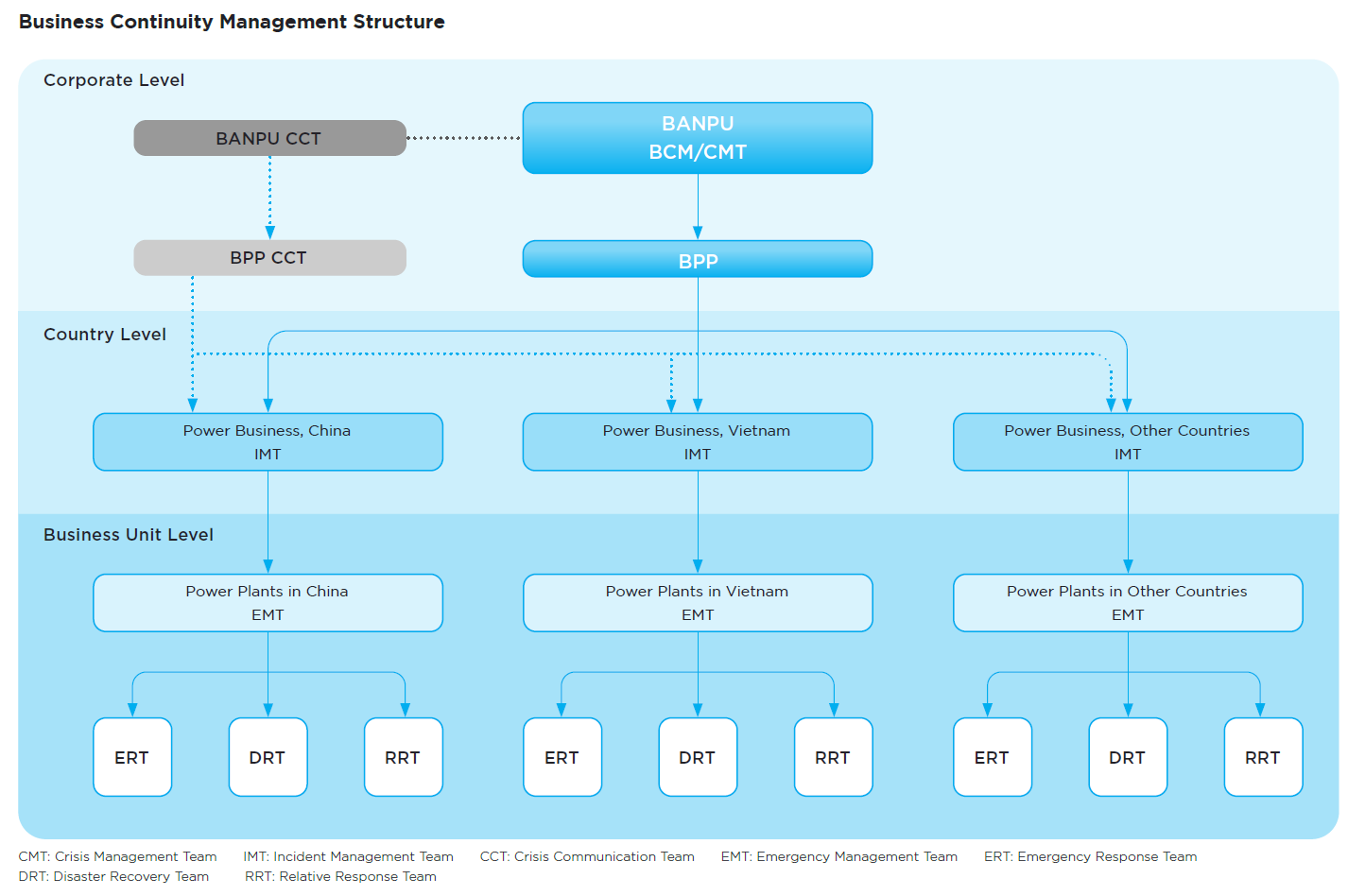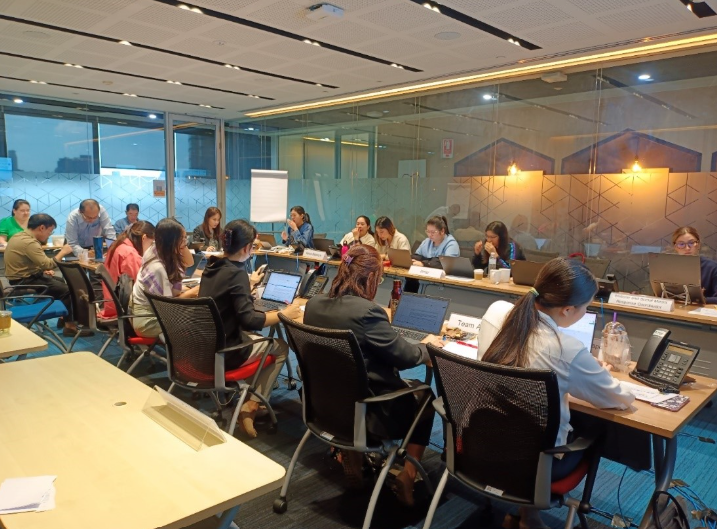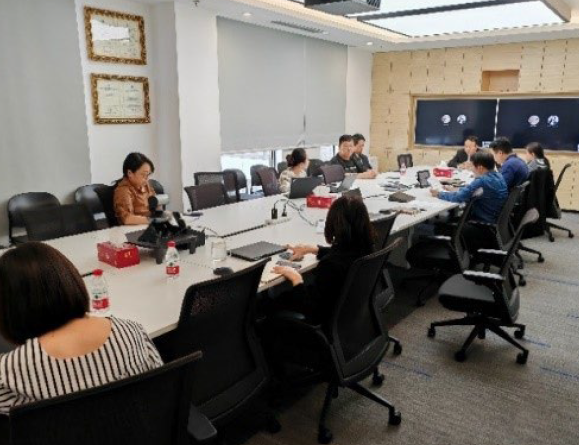Significance
Rapid and unpredictable changes from both natural disasters, such as earthquakes, epidemics, and human actions, such as terrorism, cyber-attacks, protests, fires, chemical spillages, etc., are all risks affecting BPP’s business operations and stakeholders. Subsequently, preparedness for efficiently and immediately responding and restoring operations in a timely manner, with appropriate and adequate communication during emergencies will help reduce BPP’s losses. Moreover, it makes BPP resume normal operations in a short period of time, reduce impacts and build confidence among its stakeholders.
Management Approach
BPP has implemented a business continuity management (BCM) system based on the principles and requirements of the international standard – ISO 22301, covering the process of identifying key work processes, business impact analysis, and risks assessment as well as developing business continuity plans (BCP) and simulation exercises.
Main objectives of BCM operation include:
- Response: Effectively responding to the incidents and preventing extended damage with appropriate communications to internal and external stakeholders.
- Recover: Being able to restore key essential activities to quickly deliver products and services within the time satisfied by stakeholders.
- Restore: Restoring all BPP’s activities promptly within the time accepted by stakeholders.
A crucial challenge for power business continuity is the damage of large power plants where activity recovery takes time. As a result, BPP puts great importance on risks management, preventing and controlling incident’s severity impacts, as well as determining appropriate and timely communication channels with public.
BPP’s BCM has been integrated into Banpu Group. It is supervised and managed by Banpu Group, with BPP’s CEO serving as a member of the Crisis Management Team (CMT) and designated as the event commander responsible for providing information to the public during a power business crisis. This integrated BCM operation reflects a seamless way of working, optimizing operational resources for maximum effectiveness.
BPP continuously conducts the annual BCP exercise at both corporate and country levels. The drill is arranged alternately, while surveillance and review of the system efficiency is done through internal audit system and management’s reviews annually. Moreover, each business unit is encouraged to share what they have experienced and learned in response to various threats to apply those lessons learned in the context of each country.

The BCM of Banpu NEXT, a joint venture company, has been integrated into Banpu Group. Meanwhile, the BCM of joint-venture power plants, namely BLCP Power Plant and HPC Power Plant, is not included in this structure, as they are governed by their respective Boards of Directors. Consequently, BPP has assigned a liaison officer to report data and current situations in preparation for communications related to BPP as a joint-venture company. Additionally, both power plants have their own BCP and conduct BCP drills annually.
Performance
- Proportion of business units practicing the BCP simulation exercises at corporate and country levels equivalent to 100%.
- Proportion of major business units conducting business continuity drills accountable for 83.33%
- BPP Crisis Communications Team (CCT) participated in CCT simulation exercise at its Bangkok headquarters.
- Implementing the country-level BCP simulation exercise at headquarters in Thailand and China’s office, covering management procedures in accordance with the business continuity plan and the requirements of the ISO 22301 standard.
Key Activities and Projects
Document Download
Business Continuity Management Policy






